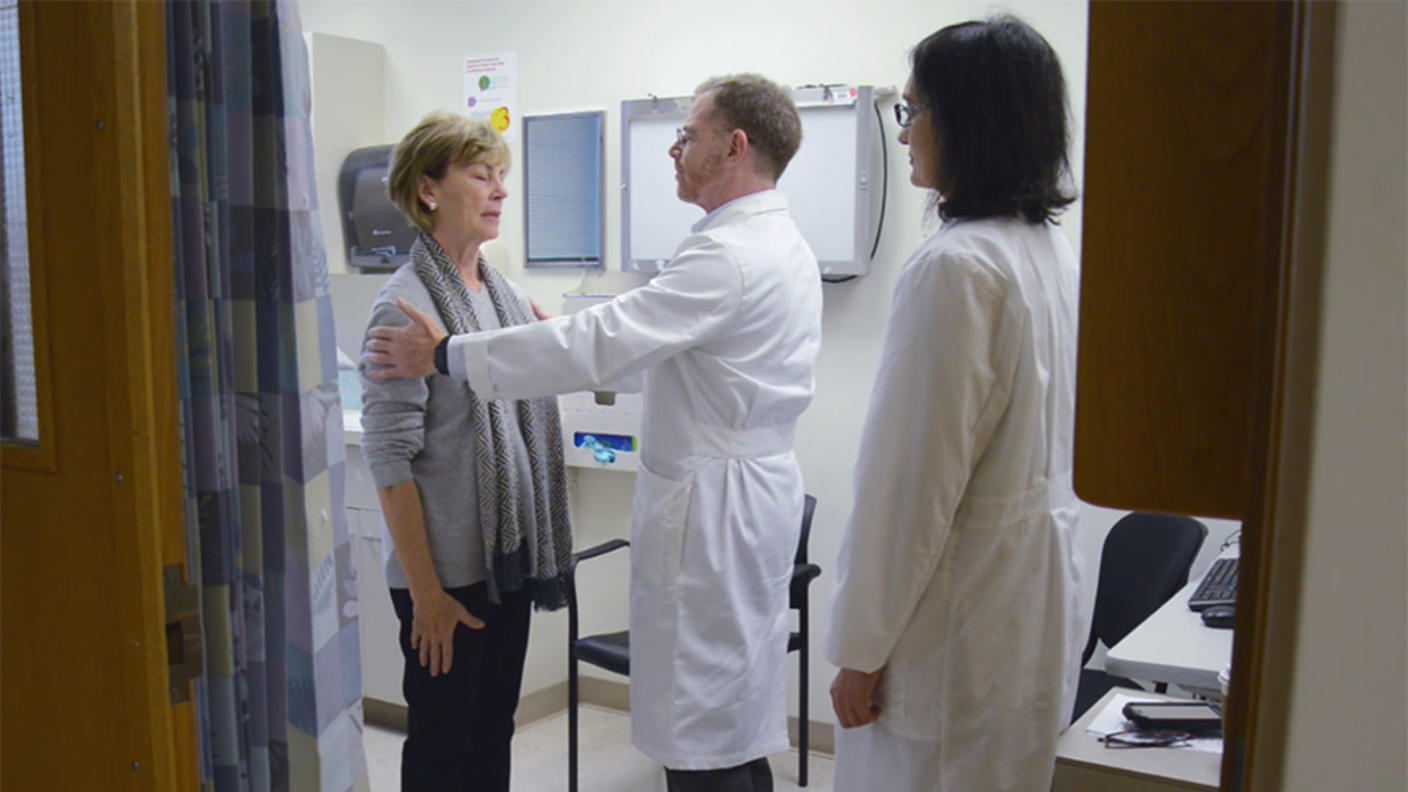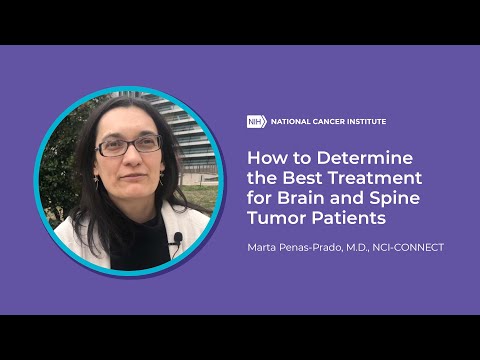Treatment for your brain or spine tumor will depend on your tumor type, tumor location, and general health. It is important to find a doctor who has experience treating your specific tumor type. Your neuro-oncologist and health care team will work with you and your loved ones to create a treatment plan and coordinate your care. Use our network of health care professionals to find an experienced doctor near you and get a second opinion.
Surgery
If possible, you will have surgery to treat your brain or spine tumor and relieve symptoms. Surgery removes as much tumor as possible without damaging healthy tissue. It is most successful when it’s performed by a neurosurgeon with expertise treating your specific tumor type.
If you have a brain or spine tumor, you should be under the care of a neuro-oncologist. A neuro-oncologist is trained to treat patients with central nervous system (CNS) tumors. If you are being seen by an oncologist or primary care doctor, ask for a referral to a neuro-oncologist for treatment of a second opinion.
Further Treatment
After surgery (or even if you don’t have surgery), you may receive other treatments depending on your tumor type and grade. Low-grade tumors (grades 1 and 2, also written as grades I and II) may be completely removed with surgery but may require radiation and/or chemotherapy. High-grade tumors (grades 3 and 4, also written as grades III and IV) are more difficult to remove and require additional treatments, such as radiation and/or chemotherapy.
You may also choose to join a clinical trial to test new treatments. Clinical trials provide doctors the opportunity to learn about new therapies that could help treat your tumor. NCI-CONNECT has clinical trials you can take part in at the NIH Clinical Center.
During treatment, you may have physical or cognitive changes that affect your quality of life. This can be challenging for you and your loved ones. Keep a dairy of your treatment symptoms and talk to your doctor about them. Your doctor may change your treatment plan to help you continue to live fully.
Making treatment decisions can be overwhelming—and symptoms and side effects can take a toll on both your body and emotional well-being. Use these resources to make the best decisions for your care, treatment, and quality of life.
Guiding Questions
- Questions to Ask Your Doctor about Your Treatment
- Questions to Ask Your Doctor about Clinical Trials
- Questions to Ask Your Doctor about Support
Treatment Resources
- Types of Cancer Treatment
- Side Effects of Cancer Treatment
- Clinical Trials for CNS Tumors
- Complementary and Alternative Medicine



